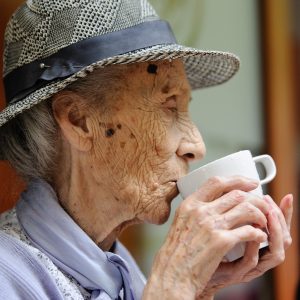 Until a miracle cure is found to stop, reverse or drastically slow down the aging process, the news flash of the day is that we will all leave this earth someday. In our anti-aging driven society of wrinkle reducers and body re-shaping, the fact is that all of us are, shall I say it – AGING! The question is not that we are aging, but can we age well through the challenges of aging?
Until a miracle cure is found to stop, reverse or drastically slow down the aging process, the news flash of the day is that we will all leave this earth someday. In our anti-aging driven society of wrinkle reducers and body re-shaping, the fact is that all of us are, shall I say it – AGING! The question is not that we are aging, but can we age well through the challenges of aging?
Unlike what many marketers would have us believe, aging is not a disease. Normal aging is associated with changes, some of these being:
- Vision – decreased depth perception and ability to distinguish dark colors. Often this includes decreased night vision.
- Hearing – loss is gradual; in the 65 – 74 age group 25% hearing loss is average, with men experiencing more than women.
- Smell – by age 80, 40% of older adults may experience changes in ability to smell.
- Touch – the number of nerve receptors in skin decrease and difficulty in the ability to discriminate temperature increases with age.
- Psychosocial – memory and reaction time typically being to decline at about the age of 70, leading to slower response time, decreased reflexes in the feet and learning time takes longer.
These age-related changes can be challenging, especially if we don’t accept these as a reality of normal aging. For instance, vision changes require that we see our eye doctor on a regular basis so that symptoms such as cataracts can be corrected. Hearing loss can be treated with hearing aids.
Other changes are more complex which can be related to a number of chronic illnesses, such as diabetes, medications, and dementia. The “snowball” effect of age-related changes such as falling, depression, memory loss, loss of peripheral vision, weight loss, for example, is not a normal part of aging and needs to be addressed in order to age well.
To age well we:
- Must accept the normal changes taking place as we age
- Address these changes with regular health care visits
- Understand that an unhealthy lifestyle such as lack of physical exercise, unhealthy eating, over-consumption of alcohol, drug or medication misuse, and lack of social interactions will have a domino effect on normal aging.
Age is the greatest factor in developing Alzheimer’s, Parkinson’s disease and other neurological symptoms, heart disease and other chronic illness. For the 78 million boomers marching toward old age who want to age well, the best first step is to realize that you have the ability to choose if this will be your course of action. To age well, we must take on the aging challenges intentionally. Not by ignoring that we are aging, or allowing ourselves to wallow in the woes of aching joints.
“Know that you are a perfect age. Each year is special and precious, for you shall only live it once. Be comfortable with growing older.” ….Louise Hay
Pam Brandon is President/Founder of AGE-u-cate Training Institute and a passionate advocate for older adults and those who serve them. She is the creator of the internationally acclaimed Dementia Live Simulation program. She may be contacted at pam@ageucate.com
 We’re all in this together… the tsunami is here and every one of us serving older adults in some capacity should be getting on the band wagon and FAST. Person and patient centered care must be focused on supporting and educating families. When family-centered care is embraced it becomes an approach to health care decision making that involves health care professionals and family members.
We’re all in this together… the tsunami is here and every one of us serving older adults in some capacity should be getting on the band wagon and FAST. Person and patient centered care must be focused on supporting and educating families. When family-centered care is embraced it becomes an approach to health care decision making that involves health care professionals and family members.